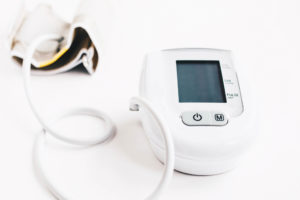Top 5 Ways to Manage Hypertension

Managing high blood pressure is crucial for overall health and to reduce the risk of serious health complications. Did you know that having an elevated blood pressure for too long starts to negatively impact your health by increasing the risk of heart disease, stroke, and kidney problems. Here are five effective ways to manage high blood pressure:
-
Healthy Eating Habits:
- Follow a heart-healthy diet rich in fruits, vegetables, whole grains, lean proteins, and low-fat dairy products.
- Limit sodium intake by avoiding foods high in sodium. Work with a dietitian to learn how to read nutrition labels to make it easy to incorporate foods that are lower in sodium and within your budget.
- Reduce consumption of saturated fats, trans fats, and cholesterol by choosing lean meats, poultry without skin, and sources of healthy fats like olive oil and avocado.
-
Regular Physical Activity:
- Engage in regular aerobic exercise such as brisk walking, jogging, cycling, or swimming for at least 150 minutes per week, or about 30 minutes on most days.
- Incorporate strength training exercises at least two days per week to improve muscle strength and overall fitness.
- Aim for a combination of moderate-intensity and vigorous-intensity exercises to maximize cardiovascular benefits.
-
Limit Alcohol and Caffeine Intake:
- Drink alcohol in moderation, which means up to one drink per day for women and up to two drinks per day for men. Excessive alcohol consumption can raise blood pressure and interfere with the effectiveness of blood pressure medications.
- Monitor caffeine intake from coffee, tea, energy drinks, and soda, as excessive caffeine consumption can temporarily elevate blood pressure. Limit caffeine intake to moderate levels, or switch to decaffeinated options.
-
Stress Management and Relaxation Techniques:
- Practice stress-reduction techniques such as deep breathing exercises, or progressive muscle relaxation to help lower blood pressure and promote relaxation. Deep breathing exercises can help lower blood pressure by activating the body’s relaxation response and promoting physiological changes that reduce stress and tension.
- Identify and address sources of stress in your life, whether it’s work-related stress, relationship problems, or financial worries. Seeking support from friends, family, or a therapist can help alleviate stress and improve overall well-being.
- Get Some Sleep!
- Lack of sleep can have a significant impact on blood pressure, and chronic sleep deprivation is associated with an increased risk of hypertension and cardiovascular disease. Here’s how inadequate sleep can negatively affect blood pressure
- Prioritizing adequate sleep is essential for maintaining optimal blood pressure and overall cardiovascular health. Adults should aim for 7-9 hours of quality sleep per night to support optimal physiological functioning and reduce the risk of hypertension and related complications
In addition to these lifestyle modifications, it’s important for individuals with high blood pressure to regularly attend follow-up appointments with their doctor to track progress and adjust treatment as needed. They must also monitor their blood pressure levels regularly, take prescribed medications as directed by their healthcare provider (that means no skipping doses on the days that you feel great).
